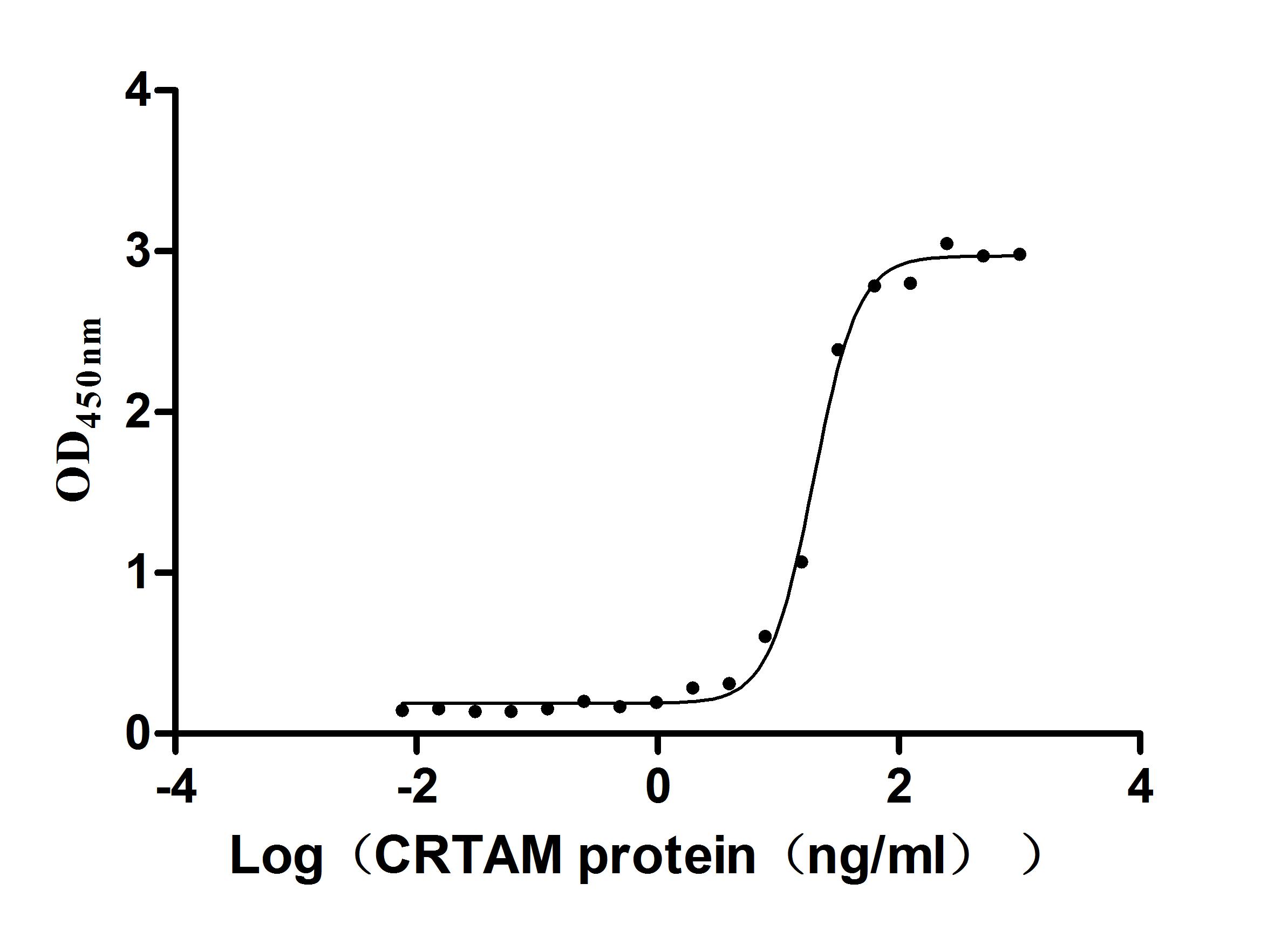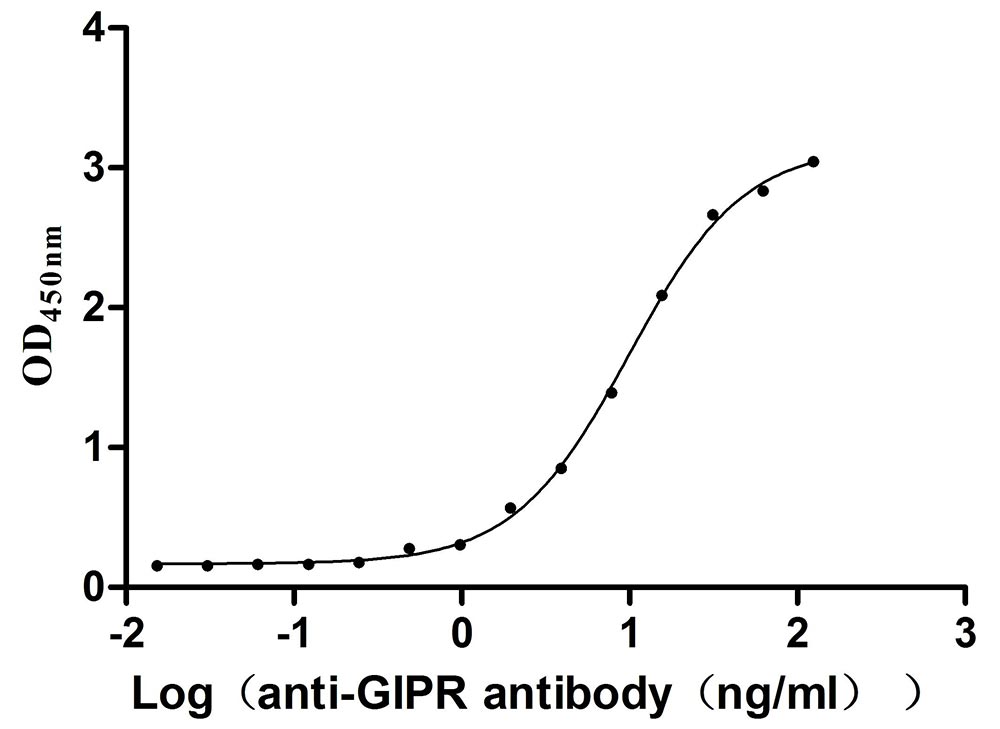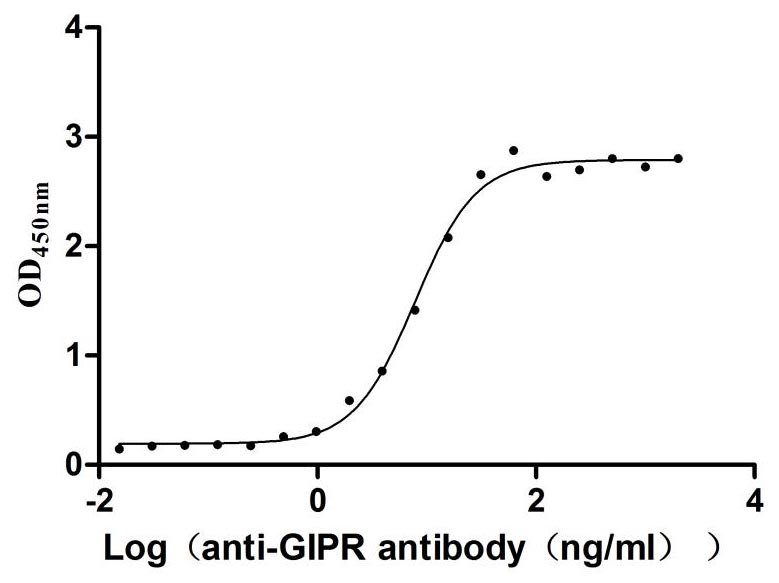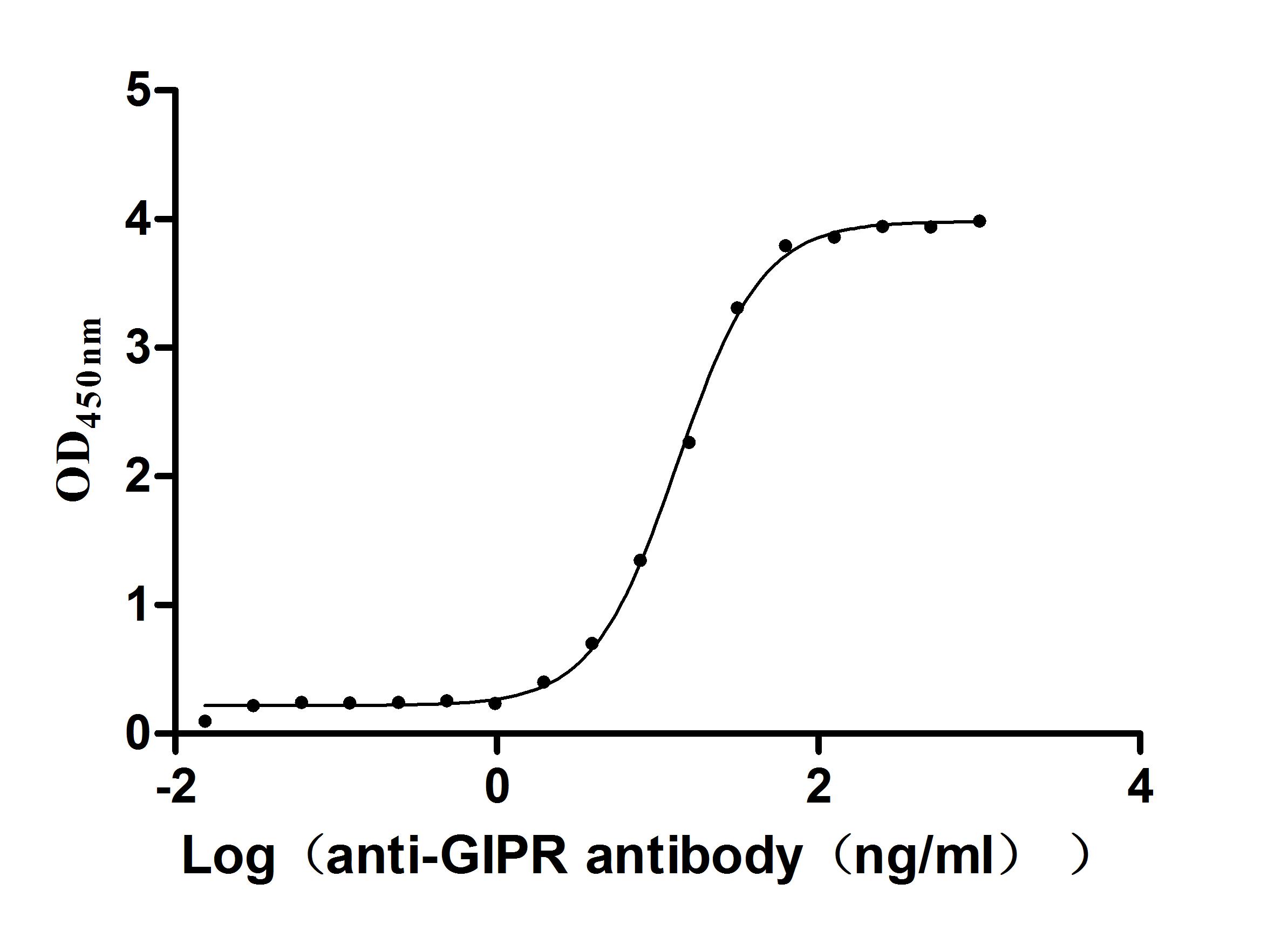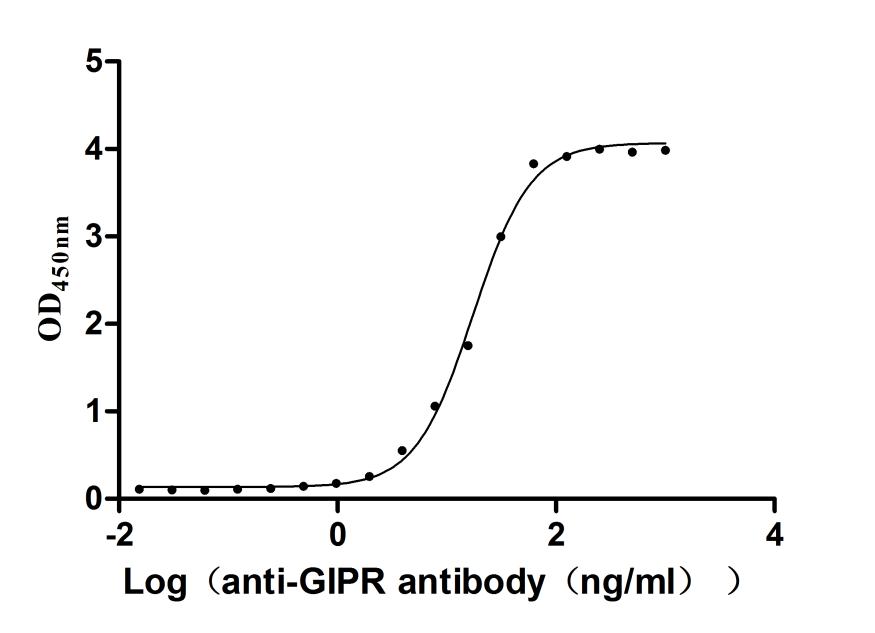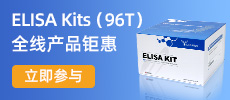Recombinant Mouse Tumor necrosis factor ligand superfamily member 15 (Tnfsf15), partial (Active)
In Stock-
中文名稱:小鼠Tnfsf15重組蛋白
-
貨號:CSB-MP729268MO
-
規(guī)格:¥816
-
圖片:
-
(Tris-Glycine gel) Discontinuous SDS-PAGE (reduced) with 5% enrichment gel and 15% separation gel.
-
Activity
Measured by its binding ability in a functional ELISA. Immobilized Mouse Tnfsf15 at 2 μg/ml can bind Anti-TNFSF15 recombinant antibody (CSB-RA023992MA1HU). The EC50 is 1.671-2.506 ng/mL. Biological Activity Assay
-
-
其他:
產(chǎn)品詳情
-
純度:Greater than 95% as determined by SDS-PAGE.
-
生物活性:Measured by its binding ability in a functional ELISA. Immobilized Mouse Tnfsf15 at 2 μg/mL can bind Anti-TNFSF15 recombinant antibody (CSB-RA023992MA1HU). The EC50 is 1.671-2.506 ng/mL.
-
基因名:
-
Uniprot No.:
-
別名:TNF ligand-related molecule 1; Vascular endothelial cell growth inhibitorGene names
-
種屬:Mus musculus (Mouse)
-
蛋白長度:Partial
-
來源:Mammalian cell
-
分子量:24.3 kDa
-
表達(dá)區(qū)域:61-252aa
-
氨基酸序列AGQLRVPGKDCMLRAITEERSEPSPQQVYSPPRGKPRAHLTIKKQTPAPHLKNQLSALHWEHDLGMAFTKNGMKYINKSLVIPESGDYFIYSQITFRGTTSVCGDISRGRRPNKPDSITVVITKVADSYPEPARLLTGSKSVCEISNNWFQSLYLGAMFSLEEGDRLMVNVSDISLVDYTKEDKTFFGAFLL
-
蛋白標(biāo)簽:N-terminal 10xHis-tagged
-
產(chǎn)品提供形式:Lyophilized powder
Note: We will preferentially ship the format that we have in stock, however, if you have any special requirement for the format, please remark your requirement when placing the order, we will prepare according to your demand. -
緩沖液:Lyophilized from a 0.2 μm filtered PBS, 6% Trehalose, pH 7.4
-
復(fù)溶:We recommend that this vial be briefly centrifuged prior to opening to bring the contents to the bottom. Please reconstitute protein in deionized sterile water to a concentration of 0.1-1.0 mg/mL.We recommend to add 5-50% of glycerol (final concentration) and aliquot for long-term storage at -20℃/-80℃. Our default final concentration of glycerol is 50%. Customers could use it as reference.
-
儲存條件:Store at -20°C/-80°C upon receipt, aliquoting is necessary for mutiple use. Avoid repeated freeze-thaw cycles.
-
保質(zhì)期:The shelf life is related to many factors, storage state, buffer ingredients, storage temperature and the stability of the protein itself.
Generally, the shelf life of liquid form is 6 months at -20°C/-80°C. The shelf life of lyophilized form is 12 months at -20°C/-80°C. -
貨期:3-7 business days
-
注意事項:Repeated freezing and thawing is not recommended. Store working aliquots at 4℃ for up to one week.
-
Datasheet & COA:Please contact us to get it.
相關(guān)產(chǎn)品
靶點詳情
-
功能:Receptor for TNFRSF25 and TNFRSF6B. Mediates activation of NF-kappa-B. Inhibits vascular endothelial growth and angiogenesis (in vitro). Promotes activation of caspases and apoptosis. Promotes splenocyte alloactivation.
-
基因功能參考文獻(xiàn):
- TL1A blocking ameliorates intestinal fibrosis in the T cell transfer model of chronic colitis PMID: 29254800
- ATF3 protects against LPS-induced acute lung injury by inhibiting TL1A expression. PMID: 28177121
- this study shows that TL1A-/- mice are more susceptible to dextran sodium sulfate colitis PMID: 27233964
- These data demonstrated a direct role for TL1A-DR3 signaling in tissue fibrosis and that modulation of TL1A-DR3 signaling could inhibit gut fibrosis. PMID: 24850426
- TL1A deficiency impacts on the gut microbial composition and the mucosal immune system, especially the intraepithelial TCRgammadelta(+) T-cell subset, and that TL1A is involved in the establishment of adipose tissue. PMID: 25404161
- Our data demonstrate a key role for TL1A in promoting ILC2s at mucosal barriers. PMID: 24220298
- delivers survival signals to plasma cells and promotes pathogenic Ab production in collagen arthritis PMID: 24140642
- TNFSF15 inhibits vasculogenesis by regulating relative levels of membrane-bound and soluble isoforms of VEGF receptor 1. PMID: 23918400
- These results establish a novel link between tumor necrosis factor (TNF)-family cytokine TL1A (TNFSF15) and interleukin 13 (IL-13) responses that results in small intestinal inflammation. PMID: 20980995
- role of TL1A in mucosal T cells and antigen presenting cells function and showed that up-regulation of TL1A expression can promote mucosal inflammation and gut fibrosis. PMID: 21264313
- findings suggest that the transcription factor NF-kappaB plays an important role in the regulation of VEGI expression PMID: 15702971
- neonatal CD4+ CD3- cells up-regulate both CD30L and OX40L after adoptive transfer into an adult recipient PMID: 16920944
- VEGI may have a key role in both the termination of angiogenesis and facilitation of dendritic cell maturation, which is the initial step in immune responses toward inflammatory stimuli. PMID: 17785811
- TL1A may contribute to renal inflammation and injury through DR3-mediated activation of NF-kappaB and caspase-3 PMID: 18287561
- Results reveal that TL1A is an important modulator in the development of chronic mucosal inflammation by enhancing T(H)1 and T(H)17 effector functions. PMID: 18598698
顯示更多
收起更多
-
亞細(xì)胞定位:Membrane; Single-pass type II membrane protein.
-
蛋白家族:Tumor necrosis factor family
-
數(shù)據(jù)庫鏈接:
Most popular with customers
-
Recombinant Human B-lymphocyte antigen CD20 (MS4A1)-VLPs (Active)
Express system: Mammalian cell
Species: Homo sapiens (Human)
-
Express system: Mammalian cell
Species: Macaca fascicularis (Crab-eating macaque) (Cynomolgus monkey)
-
Recombinant Human Interleukin-17A (IL17A) (T26A) (Active)
Express system: Baculovirus
Species: Homo sapiens (Human)
-
Recombinant Human Cell adhesion molecule 1 (CADM1), partial (Active)
Express system: Mammalian cell
Species: Homo sapiens (Human)
-
Recombinant Mouse Gastric inhibitory polypeptide receptor (Gipr), partial (Active)
Express system: Mammalian cell
Species: Mus musculus (Mouse)
-
Recombinant Rat Gastric inhibitory polypeptide receptor (Gipr), partial (Active)
Express system: Mammalian cell
Species: Rattus norvegicus (Rat)
-
Recombinant Macaca fascicularis Gastric inhibitory polypeptide receptor (GIPR), partial (Active)
Express system: yeast
Species: Macaca fascicularis (Crab-eating macaque) (Cynomolgus monkey)
-
Recombinant Human Gastric inhibitory polypeptide receptor(GIPR),partial (Active)
Express system: Mammalian cell
Species: Homo sapiens (Human)

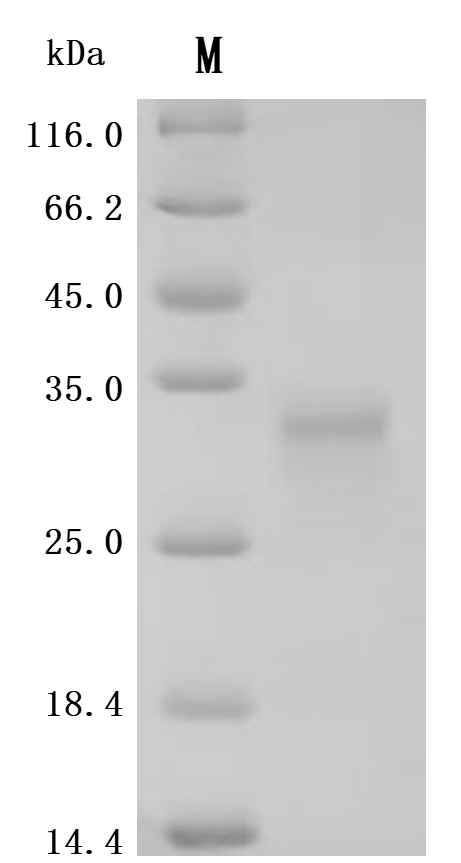
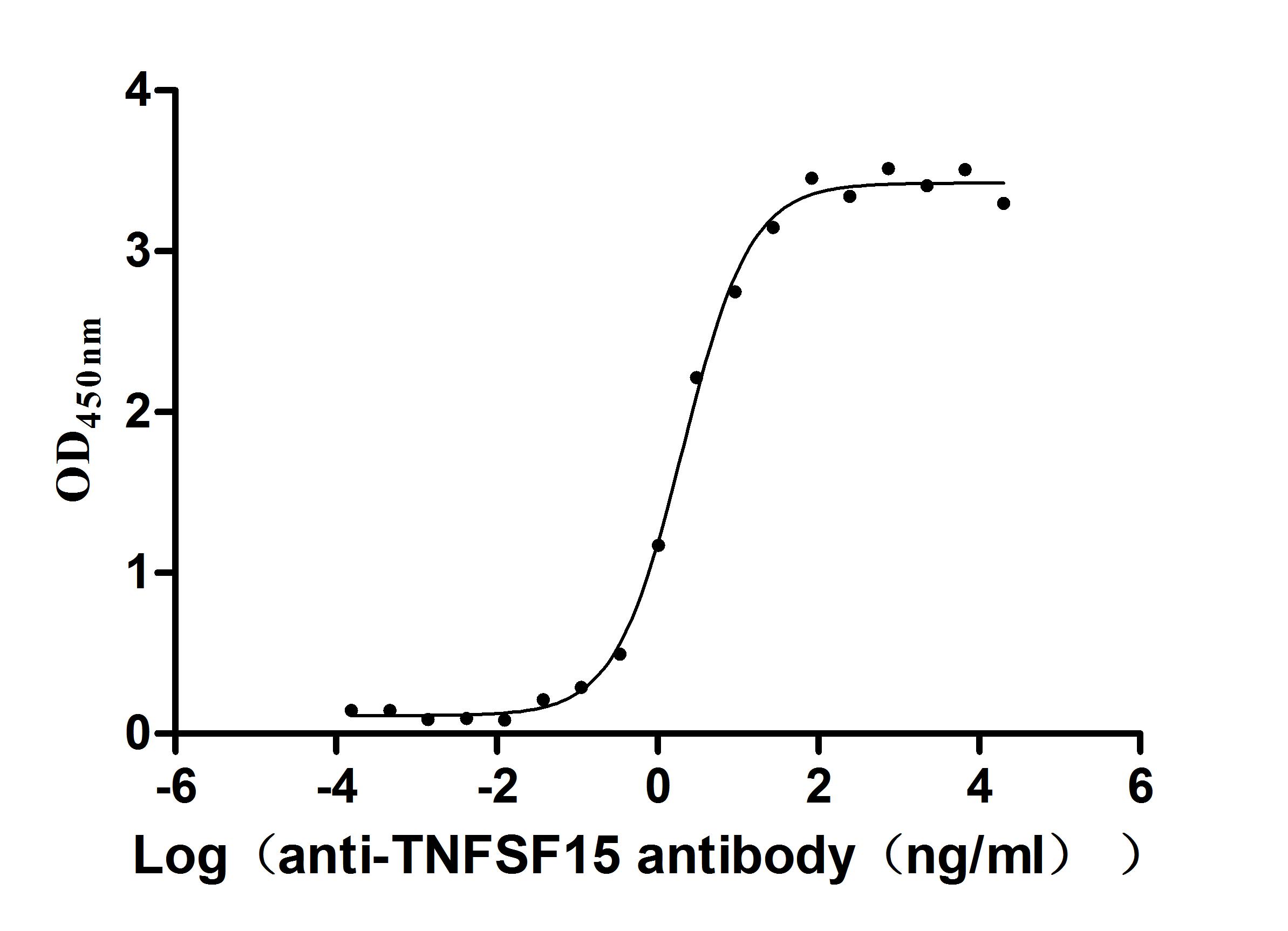

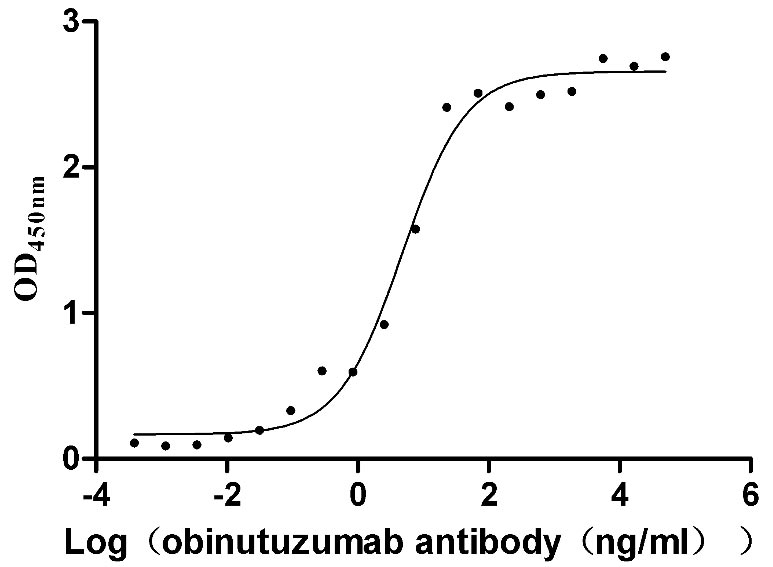
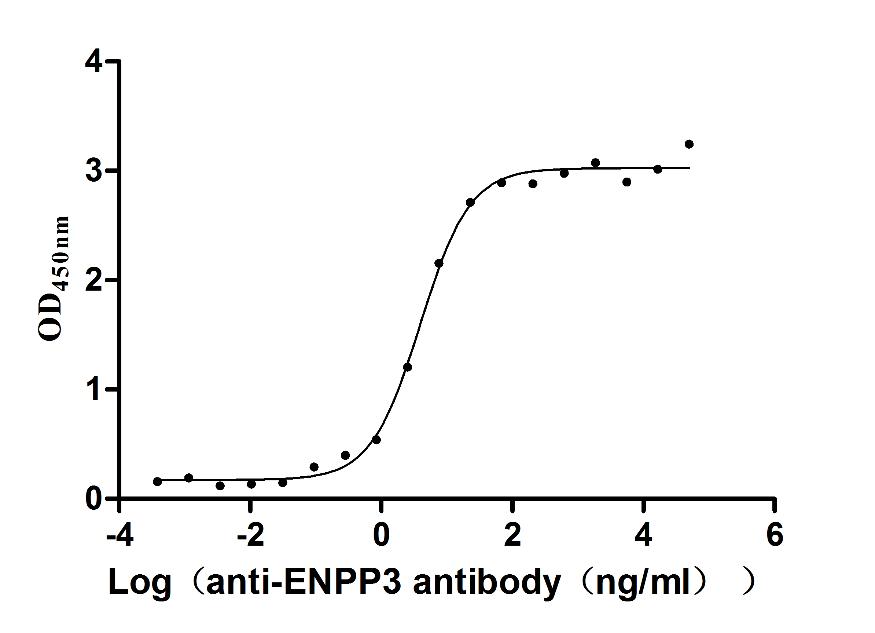
-AC1.jpg)
